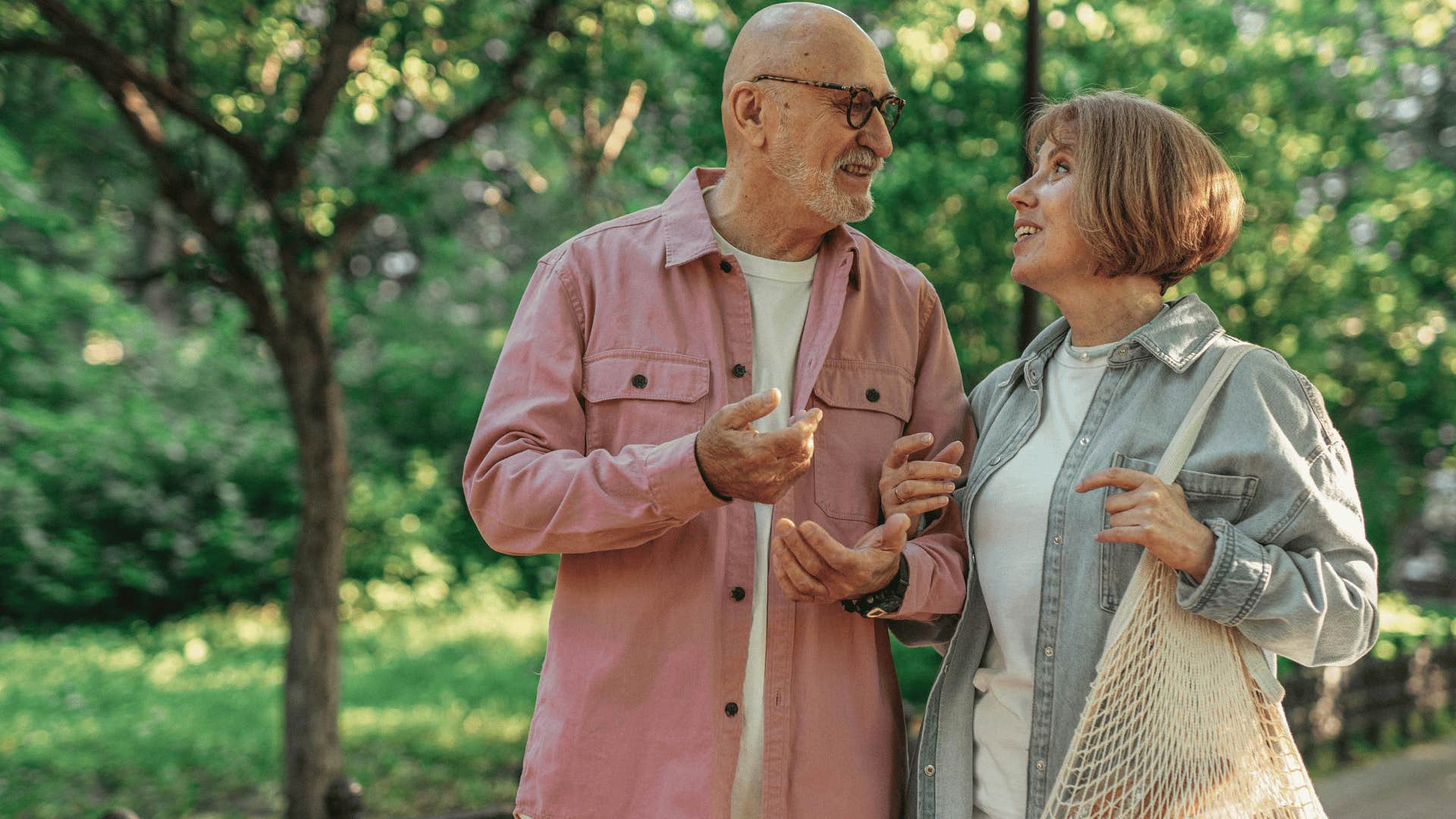7 Things Highly Intelligent Couples Do When Fighting That Make Them Immune To Divorce
Fighting can actually help a relationship prosper, rather than cause it to wallow in defeat.
 Devon Divine | Unsplash
Devon Divine | Unsplash They say that death and taxes are the only things certain in life, but conflict and arguments in a relationship also fit the bill. There’s no way around it — we always end up hurting the ones we love (unintentionally). Still, this doesn’t have to hurt your ability to have a healthy relationship.
Though it can have negative implications, fighting about relationship problems is not the beginning of the end. There is a certain authenticity to an emotional brawl that helps reveal values and set boundaries when those values have been compromised. Fighting is proof that relationships are alive and intimacy is present! So, perhaps, fighting actually leads to healthy relationships.
This isn’t to say that all fighting and arguing are helpful to a relationship. Slamming doors, name-calling, tossing clothes from the bedroom window onto the front lawn while the neighbors take pictures for Instagram — none of that is conducive to the happily ever after. Instead, there are methods to fight for the health of your relationship rather than its defeat.
Here are seven things highly intelligent couples do when fighting that make them immune to divorce:
1. Fight to understand, not to win
 Chermiti Mohamed / Unsplash
Chermiti Mohamed / Unsplash
When two people fight, the biggest mistake they make is fighting to one-up each other, to win, and to be crowned the champion as the imaginary ref holds your arm in the air in victory.
But this doesn’t work. The reason it fails is that a partnership isn’t a competition — it’s not a game, not a match, and not something where someone is declared the "winner".
It’s a union, an even field full of give and take, gains and losses, where the two of you are, ultimately, on the same team fighting for goals — to be heard, respected, seen, or connected. Remember this when you fight and put your energy towards the relationship’s triumph, rather than your own.
2. Avoid personal insults
 Ryan Jacobson / Unsplash
Ryan Jacobson / Unsplash
Name-calling is a natural part of anger. But, using too much French will all but assure you won’t be kissing that way.
Labeling someone is dangerous for two reasons. First of all, it puts that person on the defensive. Calling someone a douche will always elicit the "I'm not a douche!" response (and, perhaps, a Facebook poll where friends are asked to rate said person’s douchebaggery).
The other reason it’s dangerous is that it limits your ability to see that person in any other light. If you call your boyfriend a selfish jerk too often, you’ll see him as being one, even when he isn’t. All his actions and words will be filtered through the label, and he’ll always be seen as guilty until proven innocent in your eyes.
According to a 2021 study, name-calling shifts the focus from resolving issues to attacking the other person's character, making productive conflict resolution much harder. Children who witness or experience name-calling may be at risk for a range of emotional, psychological, and behavioral issues.
3. Listen without interjecting
 KATRIN BOLOVTSOVA / Pexels
KATRIN BOLOVTSOVA / Pexels
Part of the problem with fighting is that it fails to allow people to listen to each other, really listen to each other. One way to avoid this is to repeat the other person’s view back to them, better than they can articulate it themselves.
Doing this before you try to persuade, convince, or state your side of things is helpful in making sure there is no compromise in communication.
Once your partner hears their view or stance articulated by you, they’ll feel understood. And from this place of understanding, defenses drop, and they’ll be far more open to hearing your side of things.
4. Admit when their partner has a point
 SHVETS production / Pexels
SHVETS production / Pexels
In the middle of an argument, it’s easy to dismiss everything your partner is saying, sometimes even when you know that they speak the truth. After all, you’re fighting and stopping to agree with them may seem like it diminishes your stance or puts you in a position of weakness. But it can also be helpful.
Acknowledging that someone is right instantly disarms them because that’s what most people are fighting for: to be right. This act, in and of itself, is respectful and could be the very move that shifts the dynamic from a fight to a discussion.
Validation in relationships means acknowledging and affirming a partner's emotions, thoughts, or experiences as legitimate, even if you don't necessarily agree with them. Studies show that individuals higher in intellectual humility tend to handle relationship conflicts better and experience greater relationship satisfaction.
5. Ease tension with touch
 J carter / Pexels
J carter / Pexels
It sounds kinda crazy, but touching each other during an argument can keep things from spiraling out of control. Physical touch knocks down psychological barriers and makes it easier to come to some sort of agreement on a shared vision. It’s also a disarming tactic because people like to be touched. It’s only human to feel soothed when someone holds your hand or embraces you.
6. Back an apology with accountability
 cottonbro studio / Pexels
cottonbro studio / Pexels
Apologizing merely to end a fight is like putting a band-aid on a fresh wound without disinfecting it. Instead, only apologize because you mean it, and you see something that you did wrong, that you can fix, or that you can take responsibility for.
Otherwise, your apology will be empty, watery eyes full of crocodile tears. And the issue— whatever issue you fake-apologized for — will just rear its ugly head again someday.
A sincere apology helps rebuild trust, which is essential after a transgression in a relationship. It shows the wronged partner that the apologizer understands the impact of their actions, takes responsibility, and is committed to preventing future occurrences. A 2021 study explained that couples may benefit from understanding their partner's preferred way of receiving an apology, similar to the concept of love languages.
7. Actively choose to grow from the experience
 Jep Gambardella / Pexels
Jep Gambardella / Pexels
Fighting is only healthy when it truly fixing something when it resolves an issue that has hung over your relationship like a dark cloud. If it fails to do this, it’s like drinking non-alcoholic beer: what's the point?
Making a plan on how to move forward and create new commitments to live into, on the other hand, can help assure your fighting wasn’t in vain.
So, here's an important piece of relationship advice: sit down with each other, listen to what each other needs, and discuss how you can do things differently moving forward. This will assure that you do just that — move forward with a more solid relationship.
Clayton Olson is an International Relationship Coach, Master NLP Practitioner, and Facilitator specializing in dating, empowering men and women, self-esteem, and life transitions. He has 20 years of experience working to optimize human behavior and relational dynamics.

